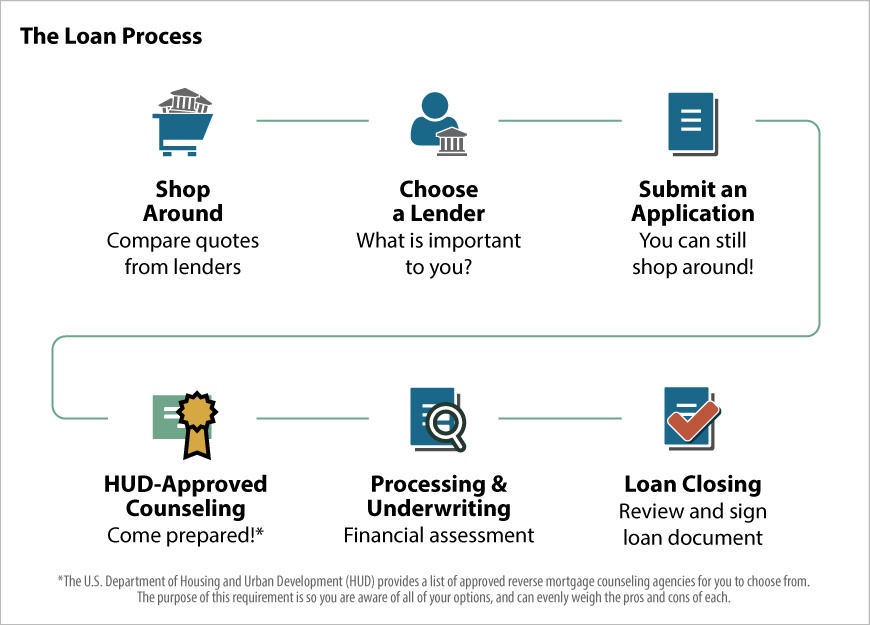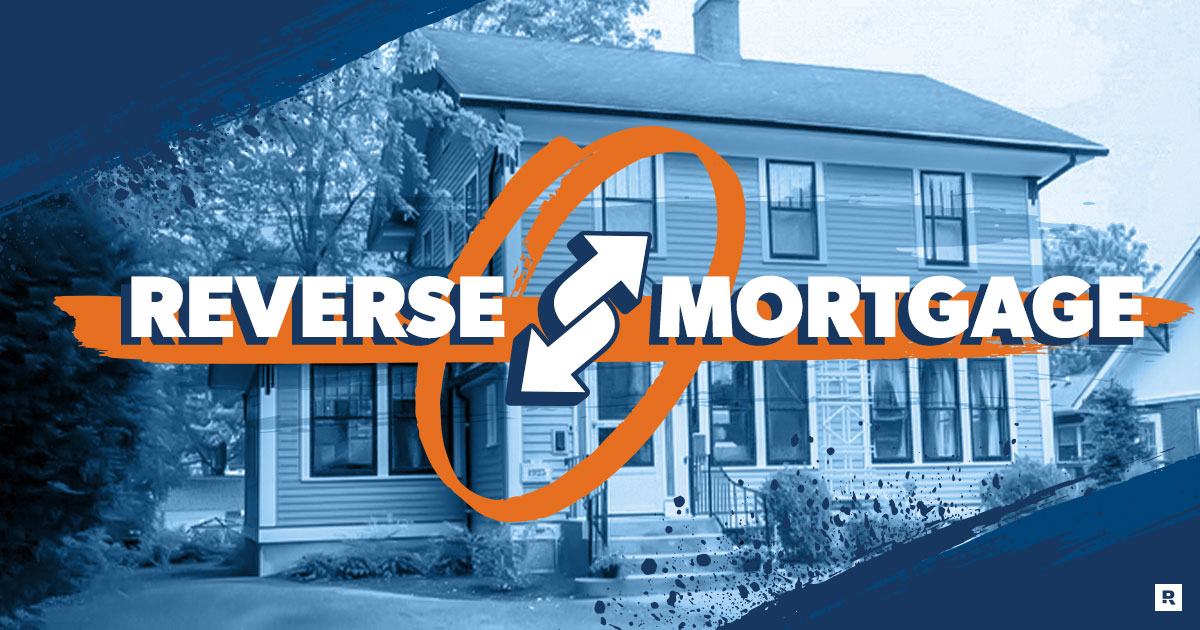Everything You Should Know About How to Purchase Reverse Mortgage
Everything You Should Know About How to Purchase Reverse Mortgage
Blog Article
Empower Your Retirement: The Smart Way to Acquisition a Reverse Mortgage
As retired life techniques, numerous people seek effective methods to improve their economic self-reliance and well-being. Among these approaches, a reverse home loan becomes a feasible option for home owners aged 62 and older, enabling them to use their home equity without the need of monthly settlements. While this financial device offers a number of advantages, including raised capital and the potential to cover necessary expenses, it is vital to understand the ins and outs of the application procedure and essential factors to consider involved. The following steps might expose exactly how you can make a well-informed choice that can substantially affect your retired life years.
Understanding Reverse Home Loans
Understanding reverse mortgages can be vital for homeowners seeking financial flexibility in retirement. A reverse home mortgage is an economic item that permits eligible property owners, commonly aged 62 and older, to transform a portion of their home equity into money. Unlike standard home mortgages, where borrowers make monthly repayments to a loan provider, reverse home mortgages allow homeowners to get settlements or a round figure while keeping ownership of their building.
The quantity offered with a reverse home mortgage relies on a number of variables, including the homeowner's age, the home's worth, and current rate of interest. Notably, the finance does not have to be paid back until the home owner markets the home, moves out, or dies.
It is crucial for prospective consumers to comprehend the implications of this financial product, including the influence on estate inheritance, tax factors to consider, and recurring obligations associated with building upkeep, taxes, and insurance coverage. Furthermore, counseling sessions with certified experts are typically required to make certain that consumers fully understand the terms of the lending. Generally, a detailed understanding of reverse home mortgages can empower property owners to make informed decisions concerning their economic future in retired life.
Benefits of a Reverse Mortgage
A reverse home mortgage uses numerous compelling advantages for eligible homeowners, specifically those in retirement. This monetary device allows seniors to convert a part of their home equity into cash money, offering important funds without the demand for regular monthly mortgage settlements. The cash gotten can be utilized for various functions, such as covering medical expenses, making home enhancements, or supplementing retired life income, hence improving general monetary adaptability.
One considerable advantage of a reverse home mortgage is that it does not require payment up until the homeowner vacates, sells the home, or passes away - purchase reverse mortgage. This feature enables retired people to maintain their lifestyle and fulfill unexpected expenses without the problem of regular monthly payments. Additionally, the funds gotten are generally tax-free, permitting property owners to use their money without anxiety of tax obligation ramifications
Additionally, a reverse home mortgage can offer comfort, understanding that it can function as an economic safeguard throughout tough times. Property owners likewise retain possession of their homes, guaranteeing they can proceed residing in a familiar atmosphere. Ultimately, a reverse home mortgage can be a critical economic source, equipping retirees to handle their financial resources successfully while enjoying their gold years.
The Application Refine
Navigating the application procedure for a reverse home loan is an essential action for house owners considering this financial alternative. The initial stage entails assessing qualification, which usually requires the home owner to be a minimum click for more info of 62 years old, very own the building outright or have a low home mortgage equilibrium, and inhabit the home as their main residence.
When eligibility is validated, property owners have to go through a therapy session with a HUD-approved counselor. This session makes certain that they completely recognize the ramifications of a reverse home mortgage, including the duties involved. purchase reverse mortgage. After finishing therapy, applicants can continue to gather required documentation, consisting of proof of earnings, properties, and the home's value
The next action entails submitting an application to a lending institution, who will certainly analyze the financial and property certifications. An appraisal of the home will additionally be conducted to identify its market worth. If approved, the lender will offer lending terms, which ought to be assessed carefully.
Upon acceptance, the closing process complies straight from the source with, where last records are signed, and funds are disbursed. Comprehending each phase of this application procedure can dramatically boost the homeowner's confidence and decision-making concerning reverse home loans.

Key Considerations Prior To Purchasing
Buying a reverse home mortgage is a significant monetary choice that requires mindful consideration of numerous key variables. Examining your financial demands and goals is just as crucial; figure out whether a reverse mortgage lines up with your long-term plans.

A reverse home mortgage can influence your qualification for specific government benefits, such as check here Medicaid. By extensively reviewing these factors to consider, you can make a much more informed decision concerning whether a reverse home loan is the best financial strategy for your retired life.
Maximizing Your Funds
Once you have actually safeguarded a reverse home loan, efficiently taking care of the funds comes to be a concern. The flexibility of a reverse home mortgage enables property owners to utilize the funds in numerous methods, but critical planning is important to optimize their benefits.
One key strategy is to create a spending plan that details your month-to-month costs and financial goals. By identifying needed expenses such as medical care, real estate tax, and home upkeep, you can allocate funds appropriately to ensure long-lasting sustainability. Additionally, think about making use of a portion of the funds for financial investments that can generate earnings or value over time, such as mutual funds or dividend-paying supplies.
One more essential aspect is to maintain an emergency fund. Setting apart a book from your reverse home loan can assist cover unanticipated costs, giving assurance and economic security. Additionally, seek advice from an economic advisor to check out feasible tax obligation implications and how to integrate reverse home loan funds right into your total retirement technique.
Inevitably, sensible monitoring of reverse home mortgage funds can boost your financial safety and security, enabling you to enjoy your retirement years without the anxiety of monetary unpredictability. Cautious preparation and notified decision-making will make sure that your funds work successfully for you.
Final Thought
In verdict, a reverse home loan presents a sensible monetary approach for senior citizens looking for to improve their retirement experience. By transforming home equity into available funds, people can address vital expenses and secure extra economic resources without sustaining regular monthly settlements.
Comprehending reverse home mortgages can be important for homeowners seeking economic flexibility in retired life. A reverse mortgage is a monetary item that allows eligible home owners, usually aged 62 and older, to transform a portion of their home equity into money. Unlike traditional home loans, where debtors make monthly payments to a loan provider, reverse home mortgages enable property owners to get settlements or a lump sum while keeping possession of their residential or commercial property.
In general, a detailed understanding of reverse home mortgages can encourage homeowners to make enlightened decisions regarding their monetary future in retirement.
Consult with a financial advisor to discover feasible tax effects and just how to incorporate reverse home mortgage funds right into your general retirement strategy.
Report this page